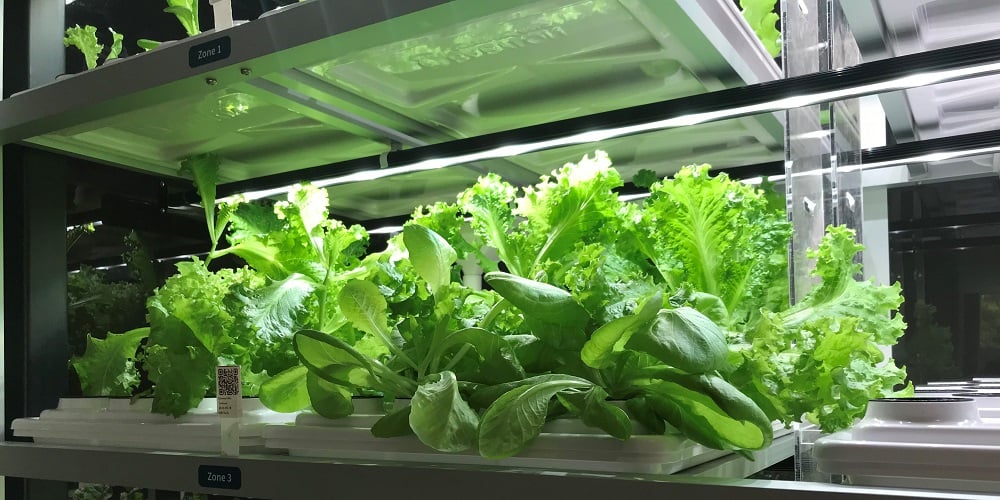Zurich North America takes sustainability commitment to its kitchen
NewsroomArticleAugust 3, 2022
When Zurich North America colleagues walk to the cafeteria of the headquarters in Schaumburg, Illinois, they’re greeted by a large refrigerator-like unit. But it’s not packed with bottled water or grab-and-go salads. It’s lush with potted plants – leafy greens, herbs and edible flowers.
This machine, called the Babylon Micro-Farm, uses a controlled glass environment with hydroponics — a process that involves growing herbs in an aqueous solvent without soil — to produce greens for Café Z’s chef to add to recipes. It reflects Zurich leaders’ commitment to sustainability, from the products and services they offer customers, to the purpose and values that guide their business decisions, to the produce that their employees can choose to eat.
The installation of the micro-farm is intended to help increase awareness among diners about sustainable food and the food system by showing them where food comes from and how food grows — creating a connection between the employees and the food they eat.
“It’s nice to show how we grow our products,” Café Z Chef Matt Carlson said. “For example, lettuce has about a six- to seven-week lifespan until the harvest, and people can observe how it grows in a glass case. People enjoy their sandwiches or salads with knowing its lettuce is from this micro-farm that they see daily.”
The farm can grow a variety of leafy greens, herbs and edible flowers. All have varying grow times from two weeks to 17 weeks, which allows for the opportunity to stagger grow rates, so the café is always harvesting fresh produce.
According to Babylon’s website, a 15-square-feet micro-farm has the capability of a 2,000-square-foot traditional farm, while reducing water usage by up to 96% and saving an estimated 676 single-use plastics from packaging.
This micro-farm doesn’t depend on pesticides. Proprietary software monitors and controls crop-specific lighting schedules and intensity, moisture and nutrient content in soils, air temperature and humidity levels, and more. An app provides real-time data analysis and feedback. The ideal conditions produce consistently high yields.
At the backside of the kitchen, Café Z staff use a BioHiTech biodigester to minimize the amount of food waste going into landfills. Food scraps from the kitchen’s food preparation as well as scraps from the food tray conveyor in the dish room are placed in the biodigester. Café Z’s biodigester diverts approximately 200 to 300 pounds of food waste from landfills weekly.
About the size of a small refrigerator, the biodigester uses enzymes and bacteria to break down food waste into a liquid. This “gray water,” as it’s described, is then safely flushed into a drain. A website and an app allow interested employees to monitor usage.
